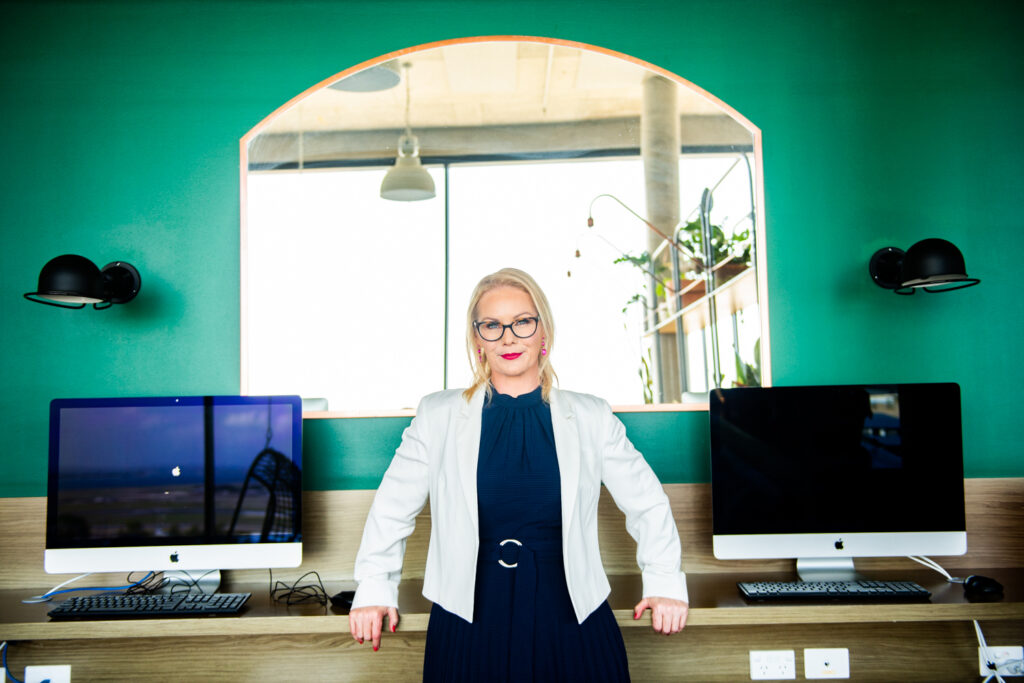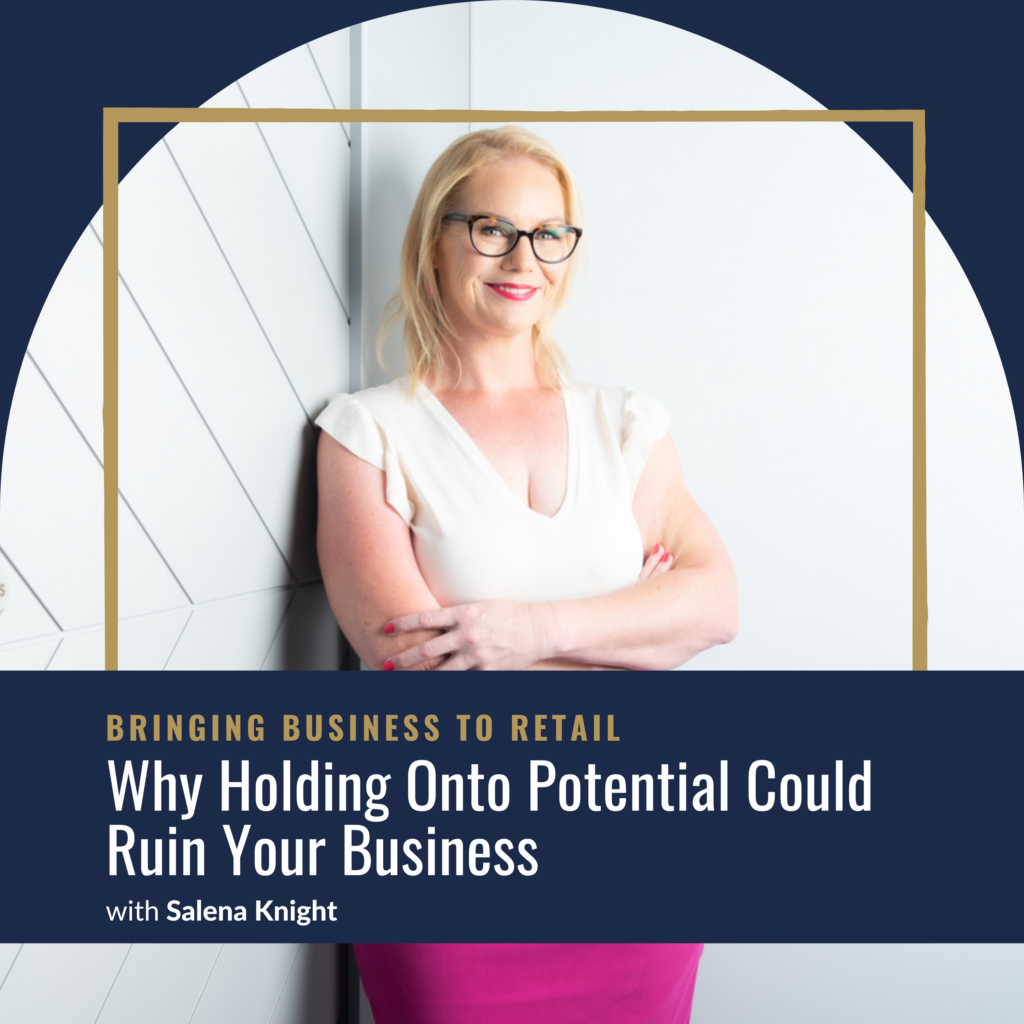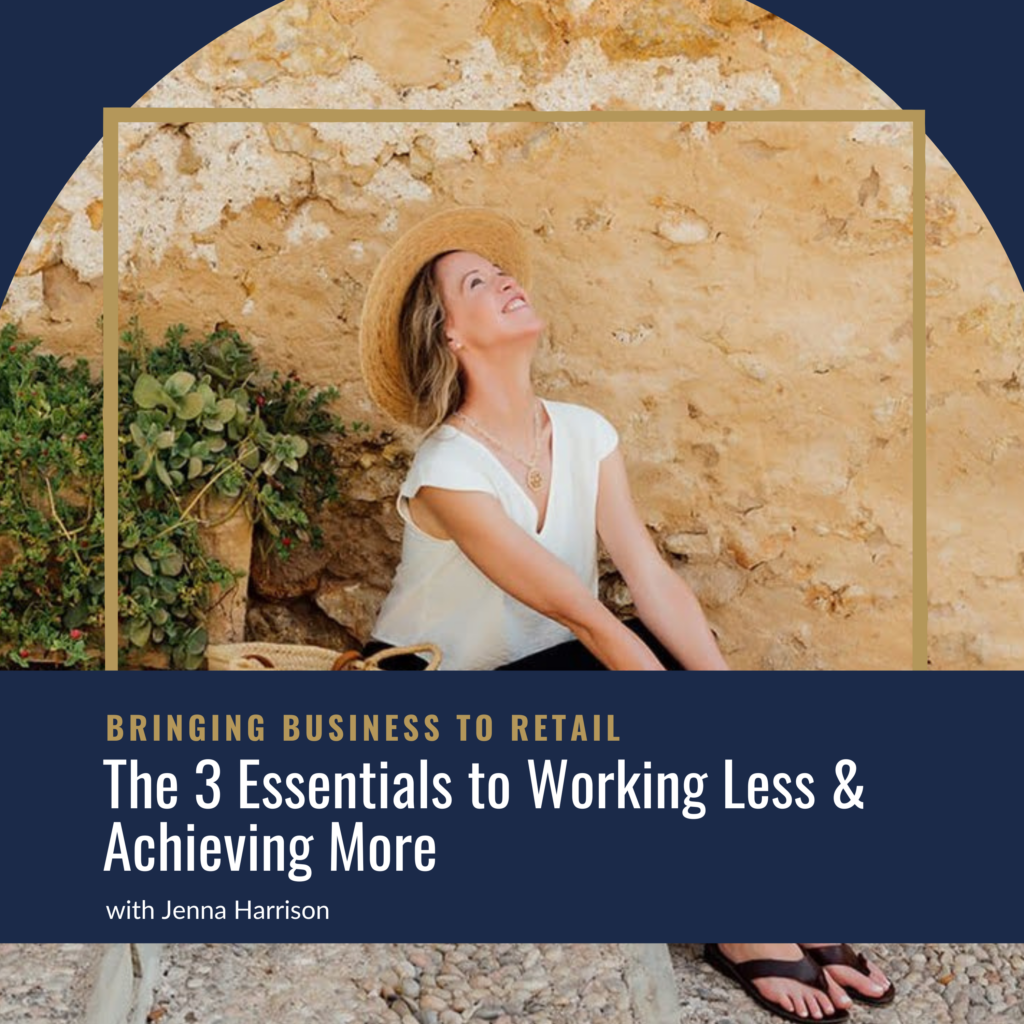
SHOW NOTES
I knew things weren’t working. I saw the red flags. I felt the overwhelm creeping back in. But I convinced myself it was just a phase… that things would get better… that my team had potential.
And that one word—potential—ended up costing me over $100,000 in lost revenue, time, and energy.
In this episode, I’m sharing something personal and a little painful: how I ended up back in the trenches doing tasks I had delegated years ago, and why I waited far too long to take action. I’ll walk you through:
- What I ignored (and what I should’ve done sooner)
- The hard leadership lessons I had to learn
- Why “someone is better than no one” is a myth
- How I’ll approach hiring and performance from now on
This isn’t just a story about letting someone go. It’s about owning your role as a leader, making the hard calls, and refusing to duct-tape your business together.
If you’re struggling with your team, feeling stuck in the day-to-day, or telling yourself things will “sort themselves out”… this is the wake-up call you might need.
Here’s to making smarter, braver decisions in your business.
— Sal
LISTEN NOW on The Bringing Business To Retail Podcast
I knew for months that certain team members weren't delivering that gaps were forming and that processes weren't as robust as they needed to be. But I let things slide. I told myself, it's fine, it's manageable until it wasn't, until I was scrambling, picking up the pieces and wondering why I was back in the trenches of tasks I had delegated years ago.
Hey there and welcome back to the Bringing Business to Retail podcast, where we dive into real actionable strategies to grow your retail e-commerce business. Today I wanna talk to you about something I know that so many of you struggle with, knowing you need help, but feeling too busy to actually do anything about it.
Sound familiar? Yeah, I get it. Because I have been there. In fact, as I record this, I am right back in the thick of it, and I want to share this with you as I document my journey scaling my business, because chances are at some point you're going to find yourself in this exact same position. Right now, my to-do list is longer than my available hours.
Some of those tasks are high priority, some are my day-to-day CEO responsibilities. There are a lot of things that I shouldn't even be doing at this point in my business journey, and yet somehow everything has landed back on my plate and the reason for that. Because I settled, I dropped my standards. And if you're thinking, but Sal, you have really high standards, you talk about it a lot.
How did that happen? Well, let me share with you how so that in future, if you see the red flags way before I did, you hopefully won't end up in this same situation. The truth is this mess is all my fault. As a leader, I believe it's my responsibility to guide my team to help them realize their full potential.
And that one word potential was my downfall. Now, I'm not gonna call it my downfall, but it's the thing that landed me where I am right now. I let poor performance slide for too long. I. Because I settled for less than Good. I had dropped my standards because at the time it just felt easier to deal with it rather than correct the behaviour.
Just like when your toddler has a tantrum at the checkout, sometimes it is just easier to give in and buy the damn candy. Am I right? But there is always the collateral damage, just like the inevitable sugar crash meltdown from a toddler. So during all of this. My life was chaotic. I was selling my house, I was moving, I was dealing with all of my own challenges, and some of my team members were going through really tough personal situations.
Honestly, at the time, it felt like everybody was going, even was riding the crap trade. And as we all know, our home life often affects how we show up at work. And during this time I convinced myself that if we could just get through this rough patch, everything else would be fine. It was easier for me to make excuses.
They'll come around, things will get better. We just need a little bit more time. Until one day I realized they were, and I was drowning. I was angry and I was frustrated. And the reality was we were losing money. And here's the thing, I've realized that potential. Doesn't pay the bills and it doesn't keep your business running.
It's what someone might do, not what they're actually doing. And as much as I wanted to be the leader who supported growth and supported people in tough times, in hindsight, I see. I was making excuses instead of making decisions. Looking back, the signs were all there. I knew for months that certain team members weren't delivering.
That gaps were forming, that processes weren't being followed, and that work wasn't being delivered. But I let things slide. I kept telling myself, it's manageable. Next week will be better until it wasn't, until I found myself scrambling to pick up the pieces until I found myself back in the trenches doing tasks that I had delegated years ago.
I should have acted sooner, but I didn't. And why? Because I felt. Like for these team members, their potential wasn't being realized. I knew they could do more. I knew they had done more in the past, they just weren't doing it now, and by their own admission they were showing up at a four out of 10 or five out of 10.
But for me, even at a four out of 10. They were still doing something and if they weren't there to do that handful of tasks, then who was gonna do them? I was in a place so many business owners find themselves in is somebody I. Better than nobody. And so it got to the point where I reached out to a mentor for advice.
I needed to know whether I should let these people go and or if I should give them the benefit of the doubt. Should I let them wait? Should I let them realize their potential? And she asked me a really simple but critical question. She said to me, Sal, how long will it take for you to find and train somebody to replace these people?
And I thought about it. At least six months to find, to hire, to train, to get them fully operational. I knew that I was looking at at least six months of time. Okay. So then she asked me was I better off giving this person a few months Grace to see if they could come around knowing. If I had to let them go, it would be at least six months before I'd see results.
So I knew that these people could do better. I knew that in the past they had been great employees, and so what she was asking me was, should I give them the grace of time? Should I support them during this really difficult time, knowing that it might only be a few weeks or even a month or two. Whereas the alternative was letting them go and having to find, hire, train, and it always takes a good six months before someone is fully operational and you know, driving the train forward.
I think I clung to that piece of advice like a lifeline because for me the alternative was a void of overwhelm. Lost productivity and lost revenue. The alternative was so overwhelming when I already had so much going on in my personal life that the thought of being short staffed and losing productivity, losing even more revenue, it just felt like too much.
And so I waited. I gave them grace. I tried to support them until six months had passed. I was still in the same spot. I'd given them more resources to pick up the slack. I'd given them more time. I'd given them opportunities. I'd given them teaching, I'd given them coaching. I bought books. I, I had offered so much help.
And then finally, when none of that worked, I had to put them on a performance improvement plan, but things didn't improve. Ultimately, I had to let the person go. Now, if you've ever found in yourself in this situation, it is a horrible place to be. Not only do you feel bad that you've let someone go, but you also are now in this predicament where who's going to do the work.
And for me, this was more than one person. But I tell you this because I want to share with you what I would've done differently in hindsight, number one. I should have put them on a performance improvement plan months before I actually did. I should never have waited four or five months to do this. But the reality was, and I dunno if I'm proud to say this or ashamed to say this, but I had never had to performance manage anybody.
I had always had great team members, and if we ever parted ways, it was because life pulled them in another direction. They moved away. New babies, new projects. The alternative was they were a contractor, and if they weren't delivering, we just terminated the contract. I didn't really know what to do, and so I did nothing and oh my gosh, as I record this mean Girls Sell wants to slap me because that inaction cost my business hundreds of thousands of dollars in lost revenue.
But it also did stuff that I never factored in. It lowered our standards, it reduced our customer experience, and it put an enormous amount of stress on me. The rest of the team, and even my husband, who honestly, every single day when we walked, the dogs got a complete earful as I vented. So the first thing I would've done, the first thing I will do if I ever find myself in this position again.
Is to get that performance improvement plan up and running as soon as possible. The second thing I would've done was realize that I was making decisions, biased on my optimism, because when my mentor asked me, when she walked me through the downsides of firing somebody. I used that to justify my decisions.
I was focused on me. Could I deal with the downtime? Could I deal with having to find somebody new? Could I deal with having to train it? I was clinging to what could be rather than what actually was what I didn't spend time doing. Was weighing up the other half of the equation. I was too optimistic. I had spent so much time weighing up the cost of letting a poor performer go, the hiring, the training, the transition period that I never truly asked myself and dug into the alternative of.
What if they didn't improve? What would it cost me three months later if nothing changed? How much revenue would we lose? How many customers would we lose? How would team morale suffer? And most critically, would I even recognize the full extent of the damage before it was too late? And spoiler alert, I didn't.
I had so much faith that things would improve, that they would step up. That with a little bit more support and a little bit more time, they would get back to where they needed to be. But what I'd failed to do was calculate the cost of being wrong. And that's the reality of leadership. Sometimes waiting for things to change isn't an act of patience.
It's an act of avoidance. And avoidance comes at a really steep price. And this is why I'm documenting my journey for you, because here's what I've realized. Holding onto potential is not the same as holding onto performance potential is hope. It's a feeling, it's a belief that something good will happen, but performance is action.
And action is what drives a business forward. And as CEOs, our responsibility isn't just to one team member, it is to the business. It is to our customers. It is to our entire team. Great people are the difference between where you are right now. And where you want to be. And if you are not getting there fast enough or well enough, the chances are you don't have the right people, or you are the one in your own way.
But I am determined to learn from all of these setbacks. This time I am hiring for impact, not just to fill a gap this time. Somebody is not better than nobody. I'm setting very clear non-negotiables because if I don't define them now, I will end up right back here again. And so my friend, here's my challenge to you.
If you find yourself in the same position, stop duct taping your business together. Stop settling for second best. Rip the bandaid off. Make the hard calls, and recognize that every day that you wait to fix what's broken, the cost compounds. Every day that you wait to fix what's broken actually results in weeks, months, and sometimes even years of lost productivity, lost customers, lost performance, lost sales, because there is always an opportunity cost.
The only question is, are you willing to pay it? If this episode hit home for you, I would love you to let me know. So that's a wrap. I'd love to hear what insight you've gotten from this episode and how you're going to put it into action. If you're a social kind of person, follow me at the Selena Knight and make sure to leave a comment and let me know.
And if this episode made you think a little bit differently or gave you some inspiration, or perhaps gave you the kick that you needed to take action, then please take a couple of minutes to leave me a review. On your platform of choice because the more reviews the show gets, the more independent retail and e-commerce stores just like yours, that we can help to scale.
And when that happens, it's a win for you, a win for your community, and a win for your customers. I'll see you on the next episode.
Share this episode
Watch The Video











